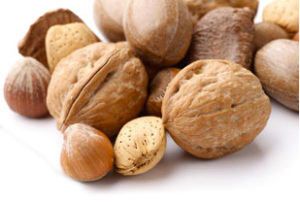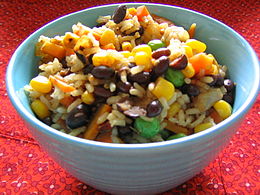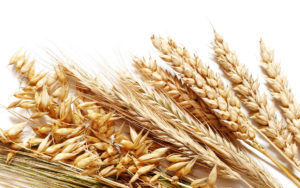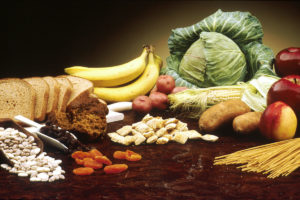 Could this be true? Eating fermented foods linked to fewer social anxiety symptoms? Fifteen years ago before the world of bacteria could be explored with state of the art genetic tests, this would have sounded too woo-woo. And now we say - could be. Next the researchers will test an experimental version of this study to see if they find causation. Right now all we can say they are linked or that we see an association.
Could this be true? Eating fermented foods linked to fewer social anxiety symptoms? Fifteen years ago before the world of bacteria could be explored with state of the art genetic tests, this would have sounded too woo-woo. And now we say - could be. Next the researchers will test an experimental version of this study to see if they find causation. Right now all we can say they are linked or that we see an association.
But note that exercise also reduced social anxiety (this was also a finding in other studies). From Science Daily:
Decreased social anxiety among young adults who eat fermented foods
A possible connection between fermented foods, which contain probiotics, and social anxiety symptoms, is the focus of recent study...The researchers found that young adults who eat more fermented foods have fewer social anxiety symptoms, with the effect being greatest among those at genetic risk for social anxiety disorder as measured by neuroticism. "It is likely that the probiotics in the fermented foods are favorably changing the environment in the gut, and changes in the gut in turn influence social anxiety," said Hilimire. "I think that it is absolutely fascinating that the microorganisms in your gut can influence your mind."
The researchers designed a questionnaire that was included in a mass testing tool administered in the university's Introduction to Psychology courses during the fall 2014 semester; about 700 students participated. The questionnaire asked students about the fermented foods over the previous 30 days; it also asked about exercise frequency and the average consumption of fruits and vegetables so that the researchers could control for healthy habits outside of fermented food intake, said Hilimire.
"The main finding was that individuals who had consumed more fermented foods had reduced social anxiety but that was qualified by an interaction by neuroticism. What that means is that that relationship was strongest amongst people that were high in neuroticism," Hilimire said.The secondary finding was that more exercise was related to reduced social anxiety.
"However, if we rely on the animal models that have come before us and the human experimental work that has come before us in other anxiety and depression studies, it does seem that there is a causative mechanism," said Hilimire. "Assuming similar findings in the experimental follow-up, what it would suggest is that you could augment more traditional therapies (like medications, psychotherapy or a combination of the two) with fermented foods -- dietary changes -- and exercise, as well."

 This latest study confirms the benefits of eating peanuts and nuts. The Netherlands Cohort Study has studied 120, 000 Dutch men and women since 1986, and they found that eating approximately 1/2 handful of peanut or nuts per day is linked to a lower risk of mortality. However, this beneficial effect did not apply to peanut butter, and they theorize that it may be due to the added ingredients in it (salt and vegetable oils that are
This latest study confirms the benefits of eating peanuts and nuts. The Netherlands Cohort Study has studied 120, 000 Dutch men and women since 1986, and they found that eating approximately 1/2 handful of peanut or nuts per day is linked to a lower risk of mortality. However, this beneficial effect did not apply to peanut butter, and they theorize that it may be due to the added ingredients in it (salt and vegetable oils that are  Stop drinking soda every day! Research finds that a daily sugar-sweetened beverage habit may increase the risk for non-alcoholic fatty liver disease (NAFLD). Earlier research has already linked daily sugar-sweetened beverages (typically soda) to
Stop drinking soda every day! Research finds that a daily sugar-sweetened beverage habit may increase the risk for non-alcoholic fatty liver disease (NAFLD). Earlier research has already linked daily sugar-sweetened beverages (typically soda) to  Prostate cancer
Prostate cancer  People are correctly raising the issue of whether the positive results (less diabetic nerve pain in type 2 diabetics) are due to the weight loss or to the vegan diet (which caused the quick weight loss)? I suspect it's the
People are correctly raising the issue of whether the positive results (less diabetic nerve pain in type 2 diabetics) are due to the weight loss or to the vegan diet (which caused the quick weight loss)? I suspect it's the  This study, like previous research, found an association between increased
This study, like previous research, found an association between increased 
 An interesting small study of one family shows how quickly one can eliminate many pesticides from the body by switching to an all organic diet. One Swedish family of 2 adults (aged 40 and 39) and 3 children (aged 12, 10, and 3) who had been eating mainly conventional food were studied.
An interesting small study of one family shows how quickly one can eliminate many pesticides from the body by switching to an all organic diet. One Swedish family of 2 adults (aged 40 and 39) and 3 children (aged 12, 10, and 3) who had been eating mainly conventional food were studied.